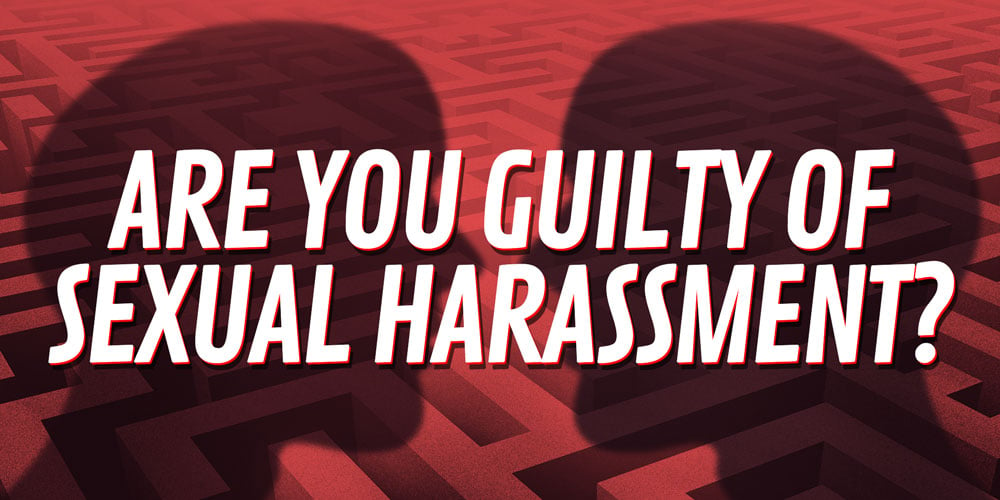
A flurry of sexual harassment cases has dominated headlines in recent years. With several high profile executives facing accusations of inappropriate behavior in the workplace, it’s time to examine how this practice affects victims both professionally and personally. Perpetrators often downplay their actions in order to minimize offensive conduct, but studies have shown that the effects of this treatment can be long lasting and psychologically damaging.
Largely overlooked until the nineteen-seventies, sexual harassment was a common dynamic in the workplace and widely regarded as “something that women had to silently endure” if they wanted to keep their jobs. The term “sexual harassment” entered the lexicon at Cornell University in 1974. It was coined by author/journalist/feminist, Lin Farley during her course, Women and Work, and seized upon by activists, who ushered in the era of examining and establishing appropriate work-based behavior.
In 1979, legal scholar and radical feminist, Catherine MacKinnon wrote her landmark book, Sexual Harassment of Women in the Workplace. She conceived the notion that this treatment was a violation of equality rights and endeavored to have it recognized as sexual discrimination.
In 1980, The Equal Employment Opportunity Commission used MacKinnon’s framework to develop guidelines regarding sexual harassment. Generally speaking, it defines sexual harassment as “unwelcome sexual advances, requests for sexual favors, and other verbal or physical conduct of a sexual nature.”
While difficult to monitor and measure, two general forms are outlined by the American Association of University Women. The first is called “quid pro quo,” or “sexual coercion,” and refers to situations where sexual favors are expected for a promotion or even keeping one’s job. The second form is referred to as “hostile work environment,” and pertains to situations where harassment makes the workplace intimidating, hostile or offensive.
Statistics related to sexual harassment are astonishing. A recent survey concluded that one in three women between the ages of eighteen and thirty-four have experienced some form of sexual harassment, but that seventy-five percent of people do not report it. There are a variety of reasons for the silence, which range from confusion about which conduct qualifies as sexual harassment, to fear of retribution. Oftentimes when victims report the abuse, they are accused of “overreacting” or “misinterpreting” the situation and are labeled “troublemakers,” or worse.
Management of a given situation depends on the circumstances and the people involved. The law doesn’t prohibit simple teasing, offhand comments or isolated incidents that are not considered serious. This doubtless adds to the confusion about what actions are acceptable versus what actions violate Title VII of the Civil Rights Act of 1964.
What is clear, however, is that whether it’s one traumatizing incident or a consistently unpleasant workplace culture, sexual harassment can take its toll on one’s physical and mental health. Glances, rude jokes and the occasional inappropriate comment may seem harmless to the perpetrator, but these actions can have a cumulative and disastrous effect on the recipient.
Negative mental consequences can include (but are not limited to): anxiety, depression and post-traumatic stress disorder. A victim might also experience decreased self-esteem, diminished self-confidence and a general deterioration of his/her psychological wellbeing. Negative physical consequences can include heightened blood pressure, sleep problems and a higher incidence of neck pain. Abusive behavior can result in a victim always being “on alert” in anticipation of mistreatment or danger. This constant conditioning may ultimately manifest in a permanent state of feeling unsafe.
Sexual harassment is illegal and punishable by law. The AAUW outlines steps to be taken if you are being harassed at work:
Despite the fact that more than seventy-five countries have enacted legislation prohibiting sexual harassment in the workplace, it persists worldwide. Take steps to protect yourself in your place of employment. For more information, go to www.eeoc.gov.
Some of the links on this website are affiliate links, and as an Amazon Associate, we may earn an affiliate commission from qualifying purchases – at no cost to you.
This website is for informational and/or entertainment purposes only and is not a substitute for medical advice, diagnosis, or treatment.
© 2025 Drew Pinsky Inc. | All Rights Reserved
Get alerts from Dr. Drew about important guests, upcoming events, and when to call in to the show.
For text alerts, msg and data rates may apply